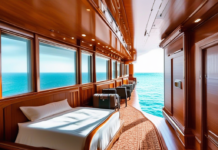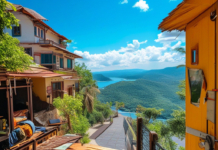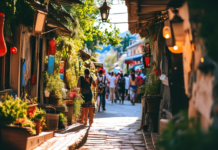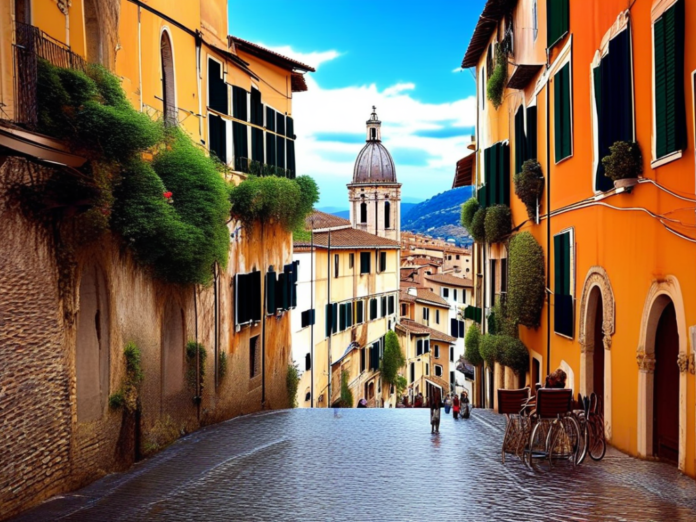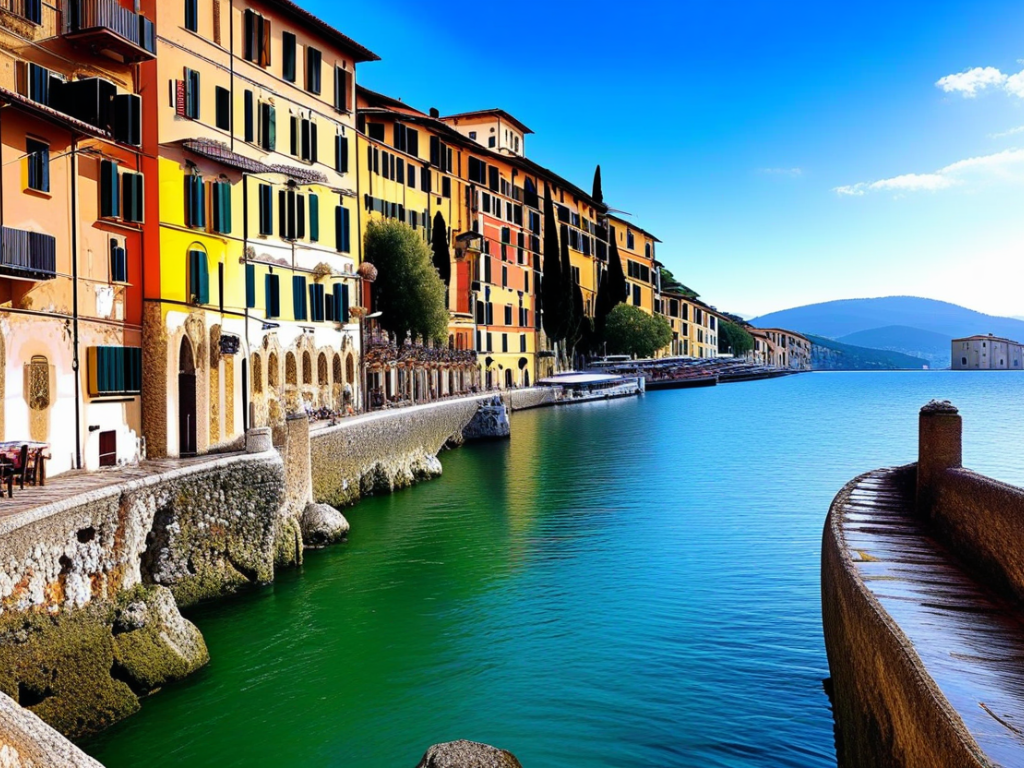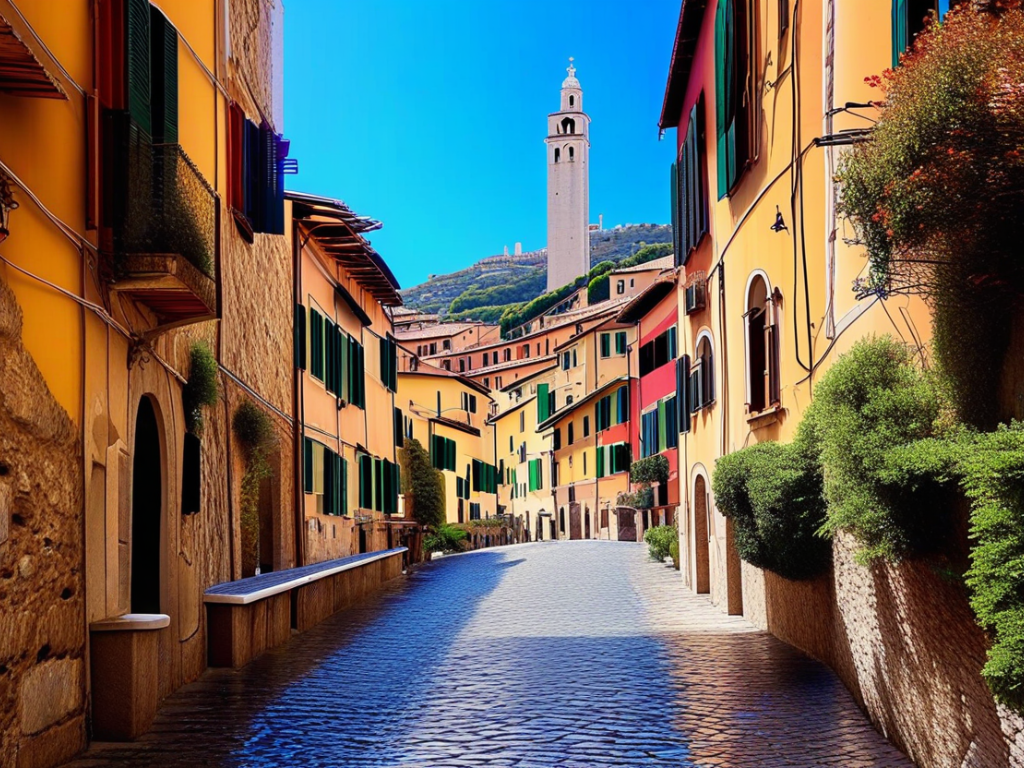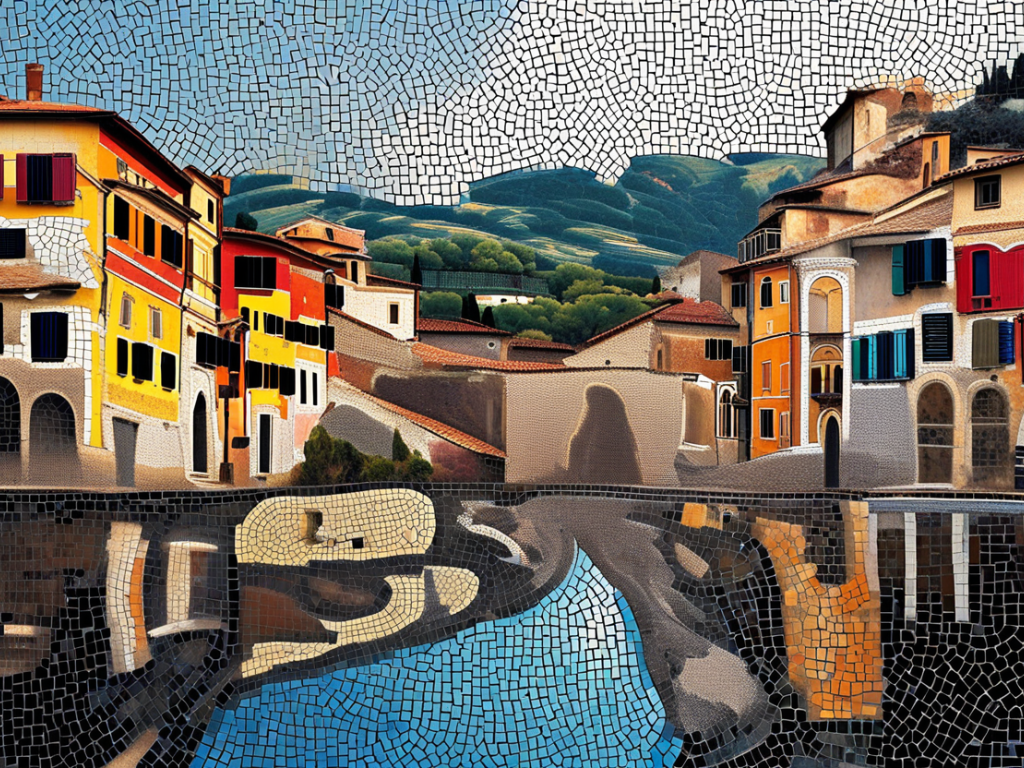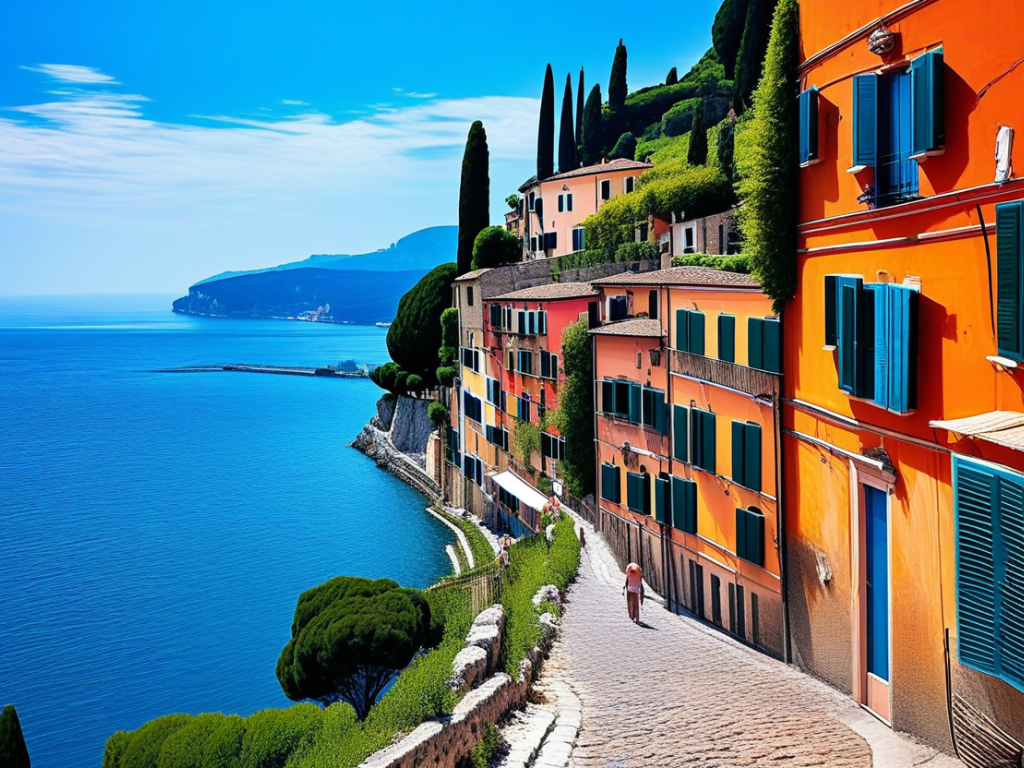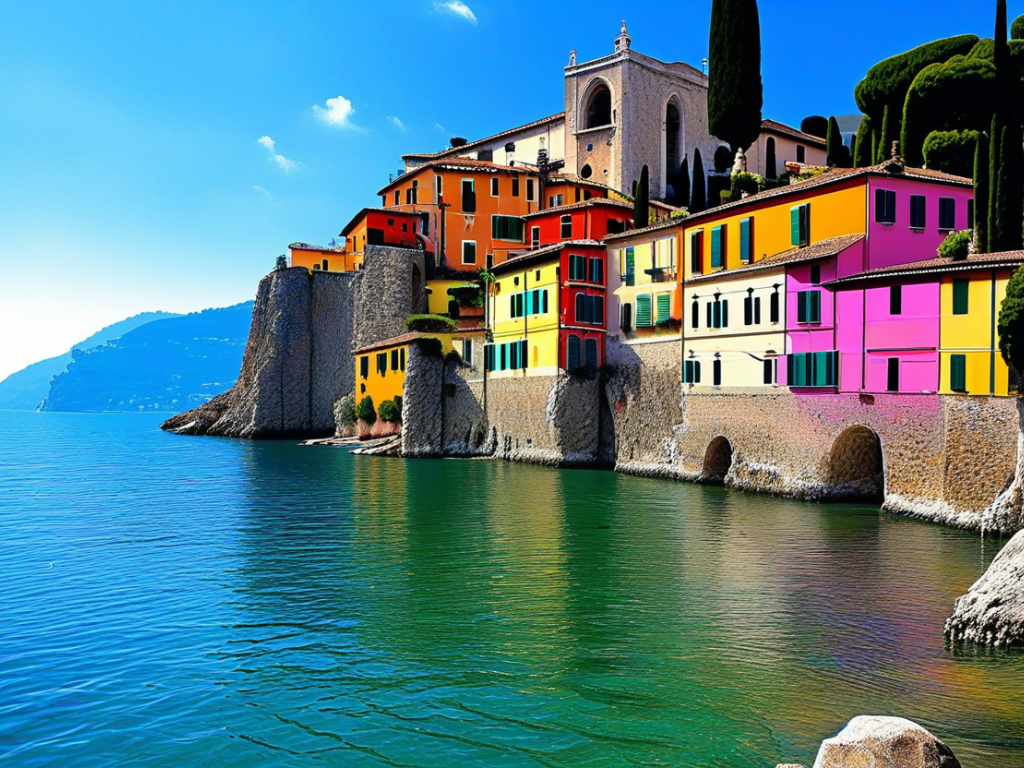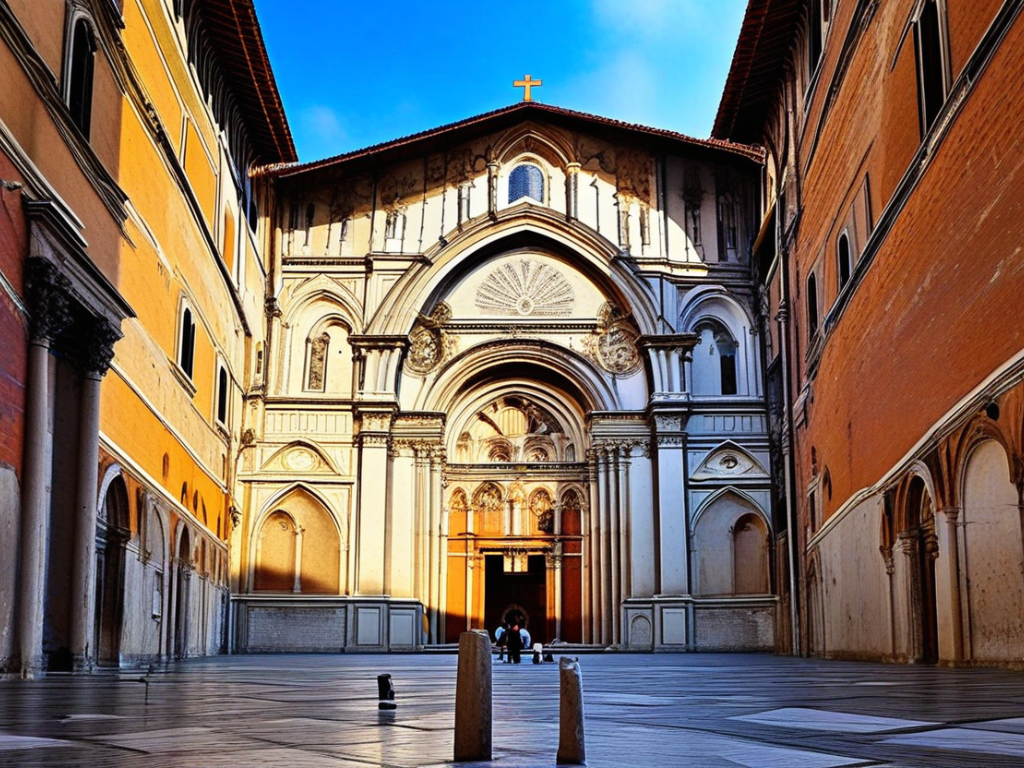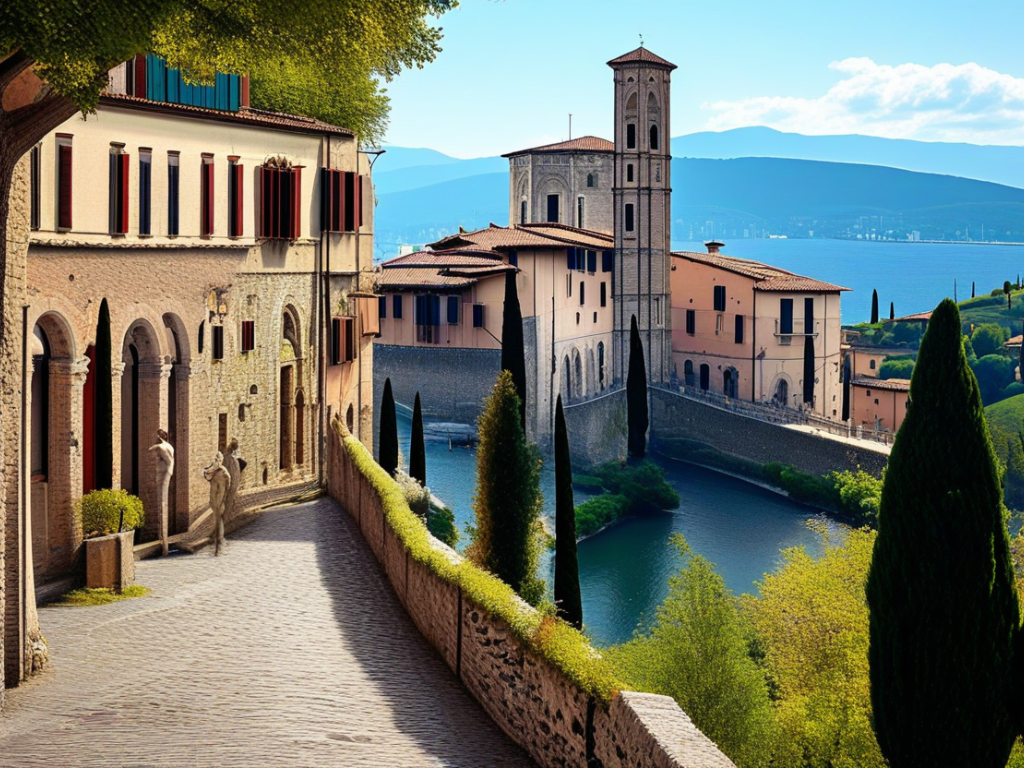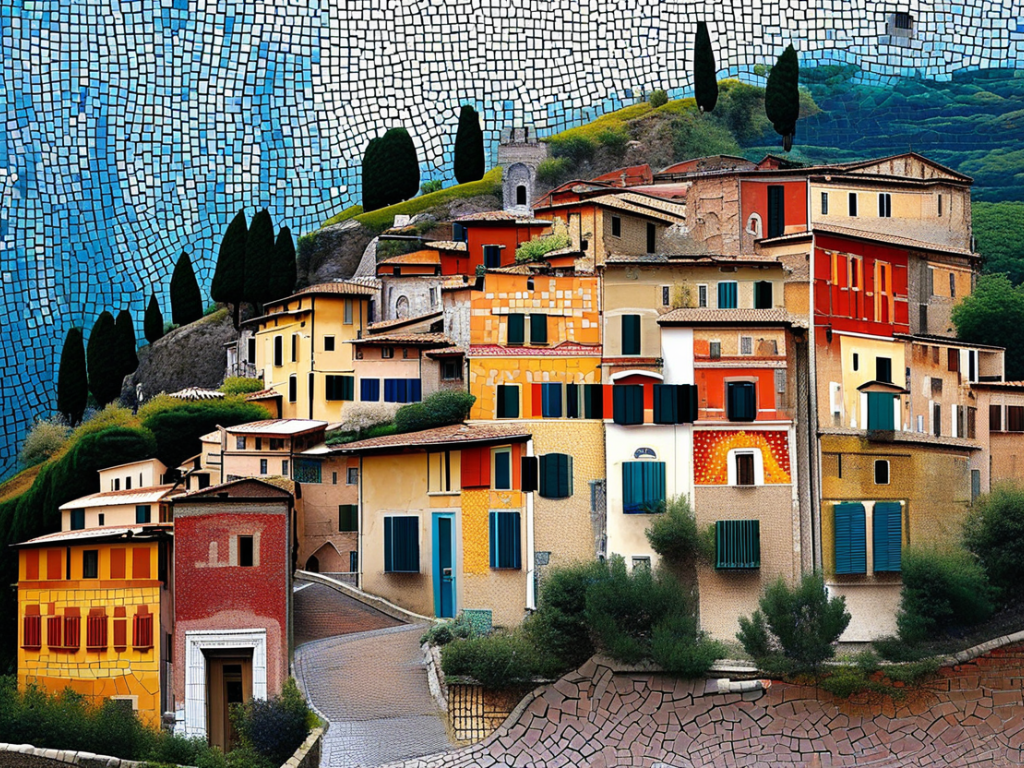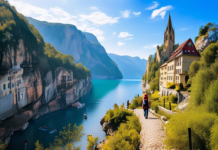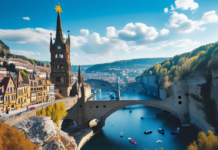Ravenna is a charming if underwhelming town of 140,000, with a fascinating history and some of Italy’s most amazing art treasures.
Ravenna is on the tourist map for one reason its 1,500 year old churches decorated with best in the West Byzantine mosaics. The Byzantine emperor Justinian brings order and stability to this part of Europe- making Ravenna the westernmost pillar of his realm.
Ravenna is like no other place in Italy, and the magnificence of its mosaics will leave you breathless – and with a stiff neck.
His church of San Vitale stands as a sanctuary of order in the midst of all that chaos. Its interior is decorated with lavish mosaics, countless vibrantly colored chips, the size of your fingernail that served as propaganda for an alliance between the Church and the emperor.
High above the altar Christ is in heaven, sitting on a celestial orb overseeing Creation, and running things here on earth is Emperor Justinian with a crown and a halo.
The walk across town to Sant’Apollinare Nuovo not only gives you time to rest your eyes, but to skip to the 6th century, when Theodoric had this basilica built as his cathedral. The walls of the long single nave are decorated with mosaics showing ships in the nearby Roman port of Classis on the left, and on the right Ravenna, with its churches and Theodoric’s palace.
The National Museum of Ravenna is a former Benedictine Monastery. It has a great collection of carved ivories, icons and ancient weapons.
About six kilometers south of Ravenna’s center on the road to Rimini, the imposing round campanile of Sant’ Apollinare in Classe stands high above the flat landscape. Built in the mid-sixth century, just outside Ravenna’s ancient Roman port of Classis, the church is decorated by the last examples of the city’s mosaics.
So much sightseeing greatness awaits discovery in Europe’s second-tier cities. I hope you will enjoy this small delightful city in the north of Italy.























